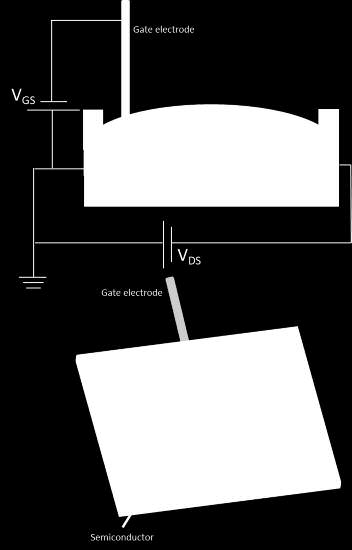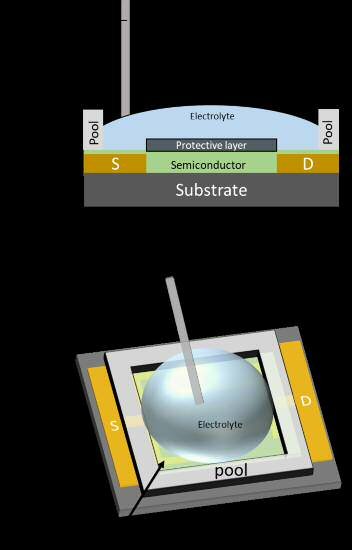CSIC has developed an electrolyte-gated field-effect transistor (EGFET) with enhanced electrical
stability. These new EGFETs operate in aqueous environment, and are stable for more than 12 hours
under continuous operation, greatly surpassing current state-of-the-art EGFETs. The increased stability
makes them suitable for real life applications.
Industrial partners are being sought to collaborate through a patent licence agreement.
An offer for Patent Licensing
Increased stability of EGFETs in aqueous environment Point-of-care (POC) biosensors or environmental portable sensors facilitate early diagnostic and analysis outside laboratories. Those sensors are based on different technologies, among them electrochemical sensors, such as electrolytegated field-effect transistors (EGFETs). EGFETs are highly sensitive, with low production cost and low energy consumption, and are compatible with flexible substrates. Importantly, EGFETs can be exposed directly to aqueous media needing less sample treatment. Unfortunately, EGFETs have limited electrical stability, less than an hour in continuous operation, due to the poor stability of the active semiconducting layer in contact with water molecules, making its real life application difficult. The present EGFET has an increased electrical stability. A new protective layer placed between the aqueous media and the active layer, greatly increases the devices electrical stability which typically degrade within an hour to successfully operate in continuous for more than 12 hours. This new device can then be applied for the label-free detection of analytes in aqueous media with few preparation/concentration of the samples. Samples can be among others: water samples, biological liquid samples, etc. The sensor can also be inserted into a microfluidic circuit in order to achieve a compact device that only requires a very small sample volume.
EGFET scheme
Main innovations and advantages
· New EGFET design that increases stability in aqueous media.




